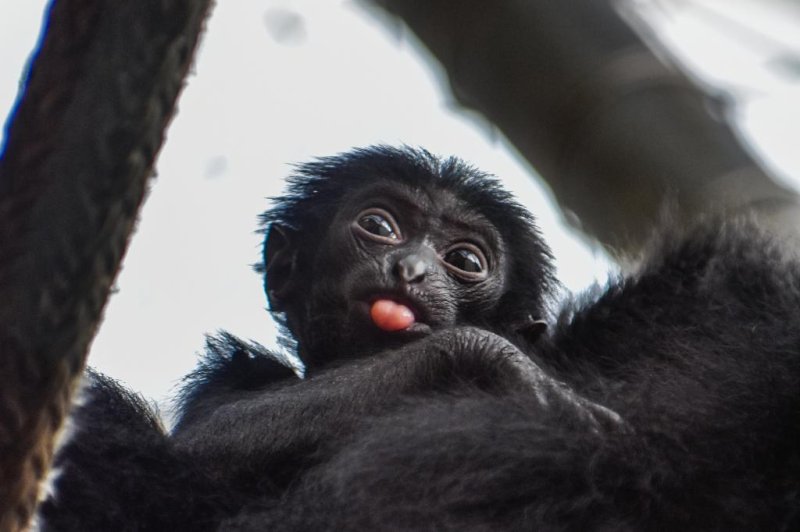The 6-week-old ape remains nameless, but the zoo is offering the opportunity to bid on what that name will be. The auction began Monday and will run until Aug. 19. The winner then has until Aug. 26 to provide the name choice, the zoo said.
Proceeds from the auction will benefit the Virginia Zoo's Act for Wildlife conservation fund, officials said. The leading bid as of Tuesday was $101.
Officials have not placed the infant through a neo-natal exam yet to allow for the mother and baby to bond, meaning that they have not yet confirmed the baby's sex. As a result all submitted baby names must remain gender neutral.
"A siamang birth is an important addition to this critically endangered lesser ape," Virginia Zoo executive director Greg Bockheim said in a press release. "Watching a baby grow and engage with its family is special for all of us."
Habitat loss, the illegal pet trade and poaching have made siamangs one of the most endangered apes in the world today.
Typically found in Malaysia and Indonesia, siamangs live high up in the rainforest trees, propelling themselves along with swings from their powerful arms.
However, according to the Smithsonian's National Zoo and Conservation Biology Institute, siamang numbers are estimated to have decreased by up to 50% in the last 40 years.
"One of the most serious threats to siamang survival is the unsustainable practice of timber extraction in Indonesia and southeast Asia," the Smithsonian says on its website.
"Habitat destruction and the subsequent degradation, either from commercial timber harvesting or conversion of land to agriculture (particularly palm oil), poses a very serious threat to these arboreal apes."
The Smithsonian also notes the popularity of siamangs as illegal pets, including the practice of killing adult siamangs to take their babies as pets.
Palm oil, one of the industries that are threatening siamang habitats the most, also has been attributed to significantly dwindling populations of many other endangered animals.
This includes critically endangered species of orangutans, elephants and tigers.
Read More
- Topics
- Animals















